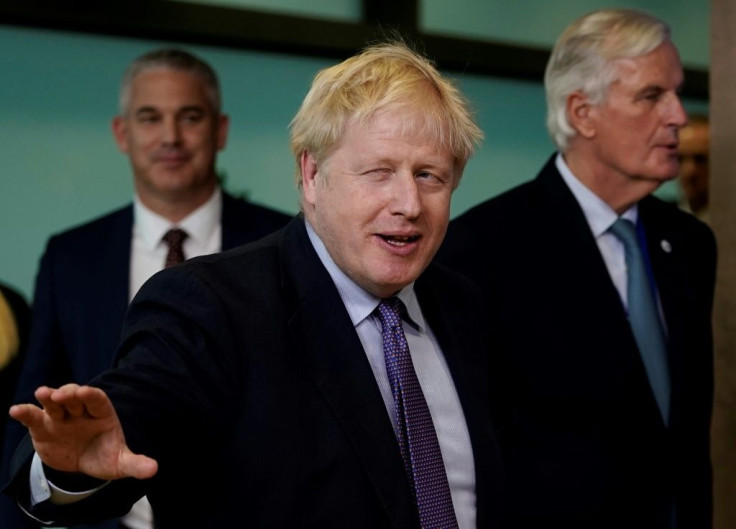Brexit Deal Done: Boris Johnson vs. Theresa May’s Brexit Difference

Ending all speculations on a no-deal Brexit on Oct 31, both the U.K and the European Union on Thursday stitched a new Brexit deal that made some significant changes in the first withdrawal agreement.
The first deal obtained by Teresa May was rejected by U.K. lawmakers thrice. The latest news on Brexit said the new deal will now need the approval of the U.K. Parliament.
Per Brexit news, Prime Minister Boris Johnson and EU leaders welcomed the deal. They said it would help the U.K. leave the EU bloc on Brexit date of October 31 in an “orderly” fashion.
PM Johnson urged the British MPs to “come together” and “get this excellent deal” over the line in the Brexit vote.
Johnson faces the challenge of getting the deal ratified by the Parliament on Saturday, as the ally Democratic Unionist Party (DUP) has opposed the deal openly.
DUP deputy leader Nigel Dodds flayed Johnson and said the PM was “too eager by far to get a deal at any cost.”
Brexit Deal, then and now
An analysis by the BBC brings out the most important aspects of the new deal. The bulk of the second deal looks the same as agreed by Theresa May barring the change in the Northern Ireland proposal.
- The controversial Irish backstop in the first deal that would have kept the U.K. in a customs union with the EU indefinitely is gone.
- In the new deal, Northern Ireland will be part of the UK's customs territory.
- But Northern Ireland will remain an entry point into the EU's customs zone as well.
- The U.K. will not force tariffs on products entering Northern Ireland as long as they are not meant for onward transportation across the border.
- The Northern Ireland Assembly will vote every four years to decide on the new trading arrangements over a simple majority.
- Products from Northern Ireland will be branded “from the United Kingdom.”
- The U.K will collect value-added tax or VAT from Northern Ireland implying revenues from transactions taxable in Northern Ireland will not go to the EU, per CNBC.
- In the transition period, the EU rules will prevail in the U.K. until the end of 2020 to allow businesses to adjust. The U.K. will pay the £33bn ($42 billion) “divorce bill” to the EU.
- The rights of EU citizens living in the U.K, and British citizens staying in the EU will be protected.
EU leaders cautious
European Council President Donald Tusk said he is not ruling out an extension to the Brexit deadline in case the British MPs reject the deal yet again.
But EU Commission President Jean-Claude Juncker said: “There is a deal so why should we have a prolongation.”
At the same time, Juncker hailed Boris Johnson's flexibility in accepting customs checks at the Northern Ireland border as the real deal clincher although it has made Johnson’s ally DUP furious.
© Copyright IBTimes 2024. All rights reserved.





















